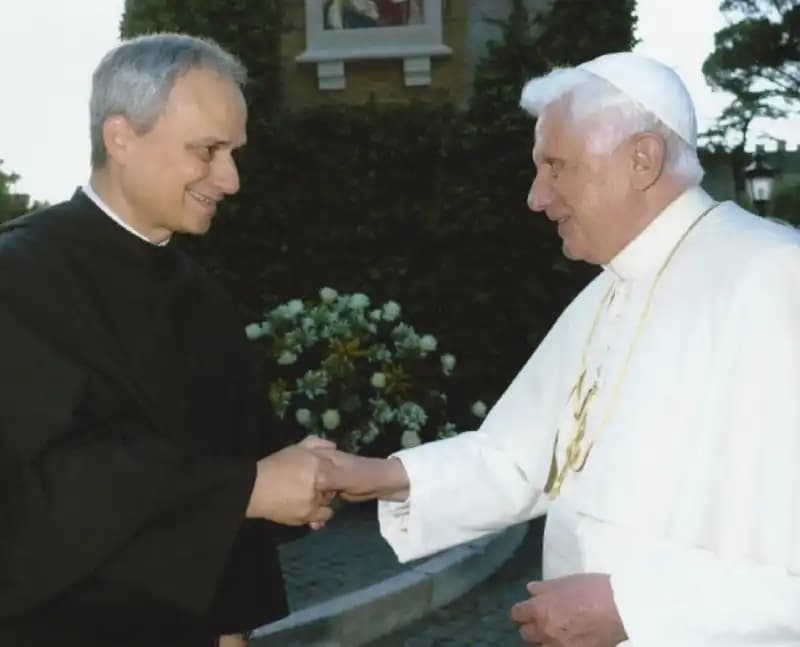ROME – Channeling his inner Pope Benedict XVI, Pope Leo met a “Working Group on Intercultural and Interreligious Dialogue” yesterday sponsored by the European Parliament and extolled what he called “healthy secularism,” a core concept for the late German pontiff which he elaborated and advocated in a variety of venues.
“European institutions need people who know how to live a healthy secularism, that is, a style of thinking and acting that affirms the value of religion while preserving the distinction — not separation or confusion — from the political sphere,” Leo XIV told the group.
Leo delivered the brief address in English.
His reference to “healthy secularism” echoed the key theme of a sana laicità, first laid out by Benedict XVI in an address to Italian jurists in December 2006 and further developed afterwards in dozens of speeches, essays and theological reflections.
The core of the idea is that a “healthy” secularism is one in which church and state are separate, but in which religious institutions and believers are encouraged to play important roles in public life, bringing their values to bear on political choices. That’s as opposed to an “unhealthy” secularism, in which religion is regarded as a threat to peaceful coexistence and religious institutions and leaders are pressured to limit their activities to strictly spiritual and liturgical matters.
To put the point into a soundbite, healthy secularism, as Benedict XVI understood it, meant freedom for, not freedom from, religion.
As a footnote, Benedict XVI was a great admirer of Alexis de Tocqueville and his famous work Democracy in America, often favorably contrasting the American form of church/state separation to what he regarded as the more rigid and extreme French version.
When Leo XIV invoked the concept on Monday in his session with the European parliamentarians, therefore, there’s little doubt he had the various ways in which Benedict introduced and developed the concept in mind.
For instance, he tellingly extolled religion – healthy religion, that is – as an element of cohesion in a diverse society, not of division.
“When authentic and well cultivated, the religious dimension can greatly enhance interpersonal relationships and help people to live in community and society,” Leo said. “And how important it is today to emphasize the value and the importance of human relationships!”
Also echoing Benedict, Leo insisted on the public contribution of religion.
“Participation in interreligious dialogue, by its nature, recognizes that religion is of value both on a personal level and in the social sphere,” he told the European politicians.
As examples of healthy secularism, Leo cited three of the fathers of a united Europe, Robert Schuman of France, Konrad Adenauer of Germany and Alcide De Gasperi of Italy. Though the pontiff didn’t mention it, Schuman is now actually “Venerable Robert Schuman,” a candidate for sainthood, after Pope Francis approved a decree certifying his heroic virtue in 2021.
De Gasperi is “Servant of God Alcide De Gasperi,” after the diocesan phase of his own sainthood cause closed in 2025. Although there’s currently no sainthood process open for Adenauer, he too was a devout Catholic.
In addition to healthy secularism, Pope Leo also urged the parliamentarians to regard “dialogue between cultures and religions” as a “key objective.”
“Being men and women of dialogue means remaining deeply rooted in the Gospel and in the values that flow from it and, at the same time, cultivating openness, listening and dialogue with those who come from other backgrounds, always placing the human person, human dignity, and our relational and communal nature at the center,” the pope said.













